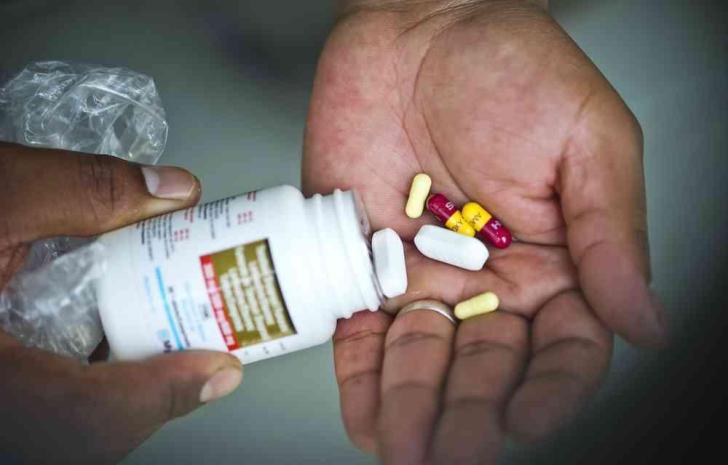News / National
ARVs shortage hits Tsholotsho
09 Dec 2024 at 06:55hrs |
0 Views

Tsholotsho district in Matabeleland North is grappling with a severe shortage of anti-retroviral (ARV) medication, despite having the highest number of people living with HIV in Zimbabwe, according to a recent parliamentary report.
The report, presented to Parliament by Senator Angeline Tongogara, revealed that Tsholotsho has a total of 18,404 individuals living with HIV. This includes 10,778 women, 5,755 men, and 977 children. Despite this alarming figure, healthcare facilities in the district are struggling to maintain adequate stocks of ARVs.
Healthcare providers in the region reported experiencing frequent shortages of the life-saving drugs, which has led to them repackaging the available ARVs into smaller quantities to make them last. In some cases, supplies that would typically last for three months per patient are being reduced to as little as one week. The situation has prompted some ART centres to borrow medication from other facilities in an effort to meet demand.
Senator Tongogara shared that the healthcare facilities in Tsholotsho never had to send patients away without their medication, but they highlighted the challenges of maintaining continuous supplies. "They informed us that the ideal situation would be to have a six-month supply of ARVs for each patient. However, due to the high demand and the mobility of patients, especially those living in neighbouring countries like South Africa, Botswana, and Mozambique, there are efforts to ensure patients do not default on their treatment," she said.
In an effort to prevent patients from defaulting, local health facilities have implemented the Malayitsha Model, where individuals traveling from neighboring countries can receive their medication more consistently.
Additionally, the report highlighted the long distances many people in Tsholotsho must travel to access healthcare, with some residents walking over 10 kilometers to reach the nearest health facility for medication and routine reviews. This long distance to healthcare is another barrier contributing to the high rates of treatment default.
Tsholotsho South legislator, Musa Ncube, acknowledged the issue of long distances but was not aware of the severe ARV shortages. She noted that significant progress has been made in addressing access to healthcare in the area, with new clinics built in Mbamba, Jowa, Inala, and Chibizela to reduce the distance patients have to travel for treatment.
The committee also conducted similar visits to other districts facing health challenges, including Mberengwa, Chivi, Guruve, Mutawatawa, and Zvimba. The findings indicate a broader issue of healthcare access and drug shortages affecting several regions across Zimbabwe.
As the situation in Tsholotsho unfolds, there is a growing call for urgent intervention to ensure a steady supply of ARVs, as well as improved healthcare infrastructure to meet the needs of those living with HIV in remote and rural areas.
The report, presented to Parliament by Senator Angeline Tongogara, revealed that Tsholotsho has a total of 18,404 individuals living with HIV. This includes 10,778 women, 5,755 men, and 977 children. Despite this alarming figure, healthcare facilities in the district are struggling to maintain adequate stocks of ARVs.
Healthcare providers in the region reported experiencing frequent shortages of the life-saving drugs, which has led to them repackaging the available ARVs into smaller quantities to make them last. In some cases, supplies that would typically last for three months per patient are being reduced to as little as one week. The situation has prompted some ART centres to borrow medication from other facilities in an effort to meet demand.
Senator Tongogara shared that the healthcare facilities in Tsholotsho never had to send patients away without their medication, but they highlighted the challenges of maintaining continuous supplies. "They informed us that the ideal situation would be to have a six-month supply of ARVs for each patient. However, due to the high demand and the mobility of patients, especially those living in neighbouring countries like South Africa, Botswana, and Mozambique, there are efforts to ensure patients do not default on their treatment," she said.
Additionally, the report highlighted the long distances many people in Tsholotsho must travel to access healthcare, with some residents walking over 10 kilometers to reach the nearest health facility for medication and routine reviews. This long distance to healthcare is another barrier contributing to the high rates of treatment default.
Tsholotsho South legislator, Musa Ncube, acknowledged the issue of long distances but was not aware of the severe ARV shortages. She noted that significant progress has been made in addressing access to healthcare in the area, with new clinics built in Mbamba, Jowa, Inala, and Chibizela to reduce the distance patients have to travel for treatment.
The committee also conducted similar visits to other districts facing health challenges, including Mberengwa, Chivi, Guruve, Mutawatawa, and Zvimba. The findings indicate a broader issue of healthcare access and drug shortages affecting several regions across Zimbabwe.
As the situation in Tsholotsho unfolds, there is a growing call for urgent intervention to ensure a steady supply of ARVs, as well as improved healthcare infrastructure to meet the needs of those living with HIV in remote and rural areas.
Source - newsday
Join the discussion
Loading comments…
































